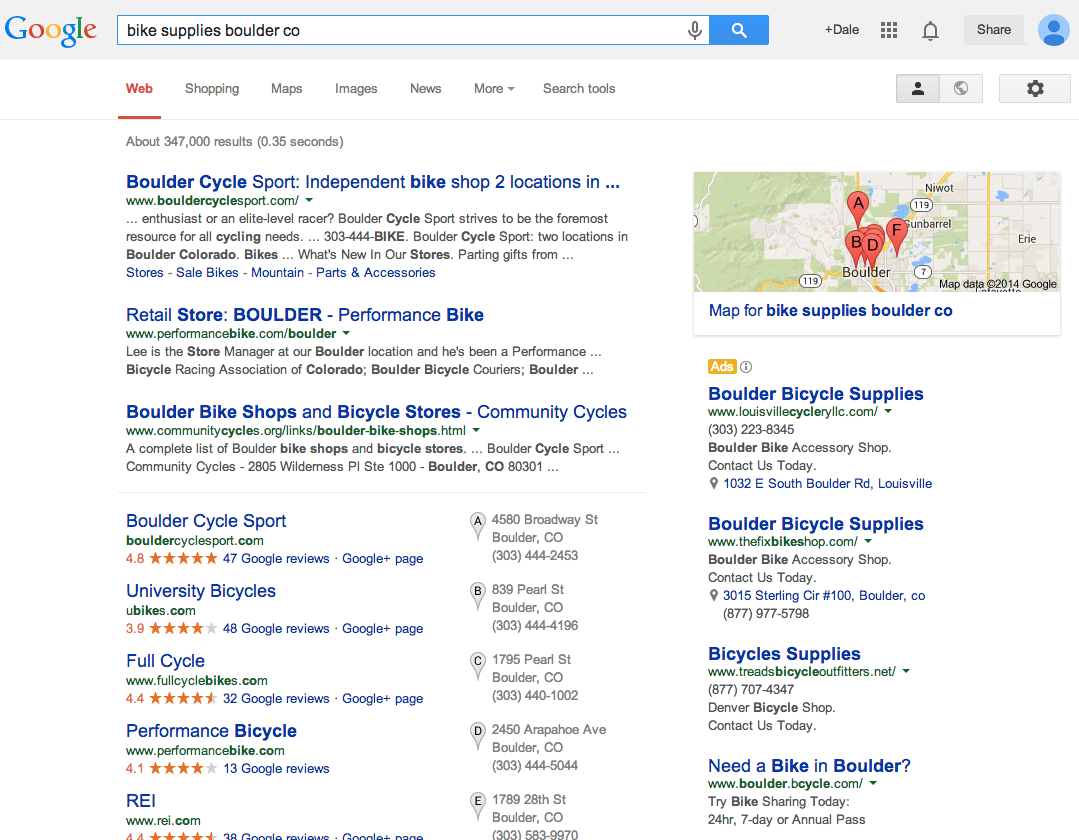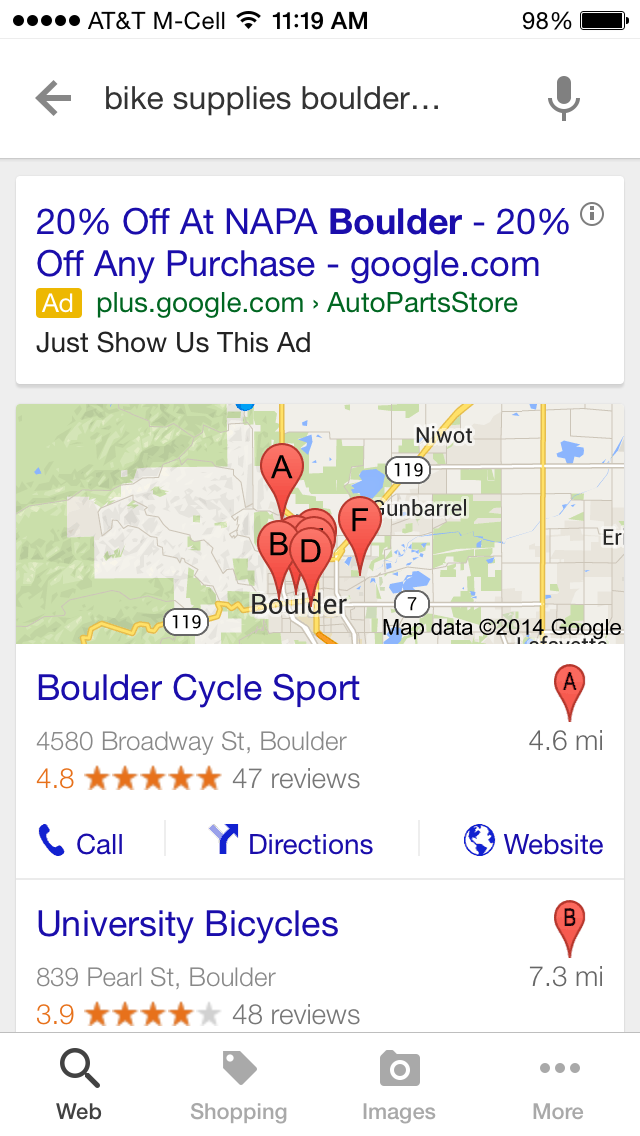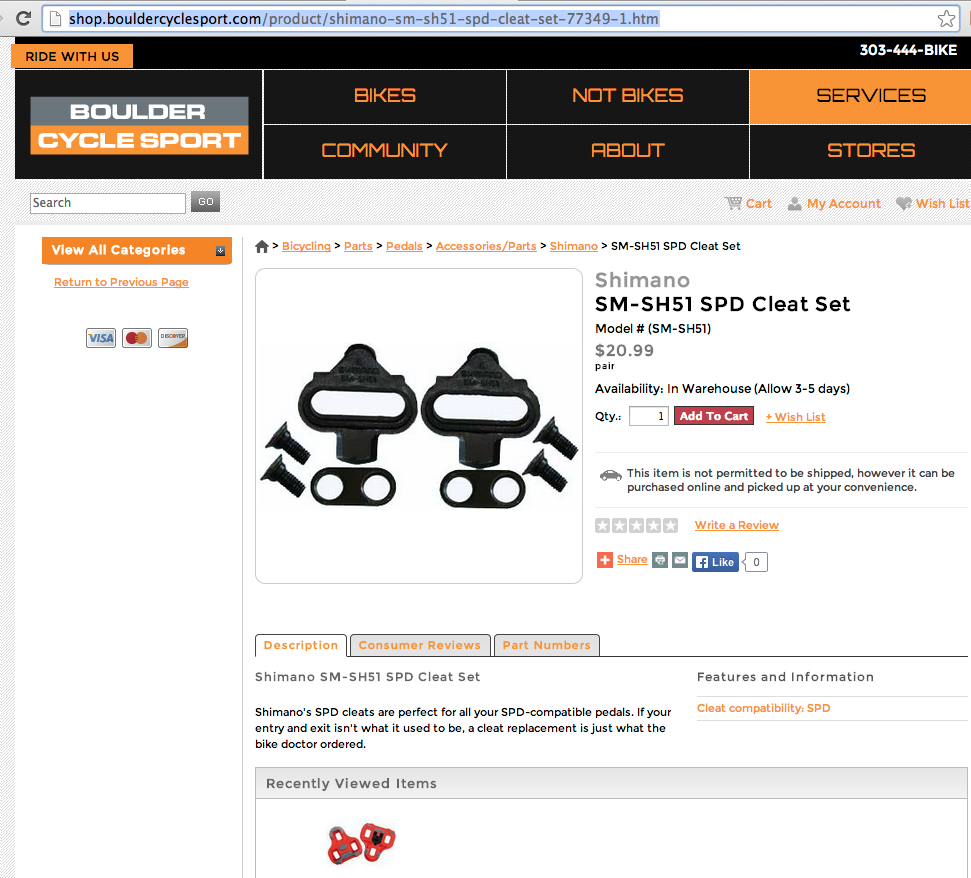Local businesses with brick-and-mortar stores have not been early adopters of ecommerce. But, with the proliferation of mobile devices and with changes in how consumers research and buy products, most local businesses now have websites, many of them mobile optimized.
Smart brick-and-mortar retailers invest in local search engine optimization to ensure that their stores are found when a local shopper searches on products that they sell. More aggressive retailers also invest in pay-per-click advertising on Google to ensure that their store names, phone numbers, and addresses are visible to a local shopper that is researching on a smartphone. Google is by far the primary search engine used by mobile shoppers. Google favors mobile friendly online stores and rewards mobile sites with high search rankings.
The next logical step for local retailers is investing in on online store. There are several reasons. First, having an online store will help local retailers optimize Google rankings for specific products and brands. Second, being able to show that an item is in stock may eliminate competitive shopping. Third, eventually local retailers could sell products to consumers outside the retailers’ immediate area, and thus expand their business.
The next logical step for local retailers is investing in on online store. There are several reasons.
Many local businesses are hesitant to open an online store. Local businesses (a) are typically unfamiliar with running an ecommerce business, (b) have little ability to ship or fulfill online orders, (c) cannot accommodate sales tax collection outside their local area, and (d) avoid the investment required.
To be sure, adding an online store is not for every local business. But, if a local retailer offers a unique set of products, she may want to evaluate the concept. Here are examples.
Bike Supplies
Boulder, Colo., where I live, is one of the bicycling centers in the U.S. There are dozens of local bike shops as well as larger retailers, including REI, Performance Bicycle, Sports Authority, and Dick’s Sporting Goods. Bicyclists in Boulder are fanatical about their bikes and their gear. I did a search on my laptop for “bike supplies boulder co” on Google and here are the results.

Google search results for “bike supplies boulder co” from a laptop computer.
Boulder Cycle Sport ranks first in both local search and general organic rankings; the company must be doing something right with search engine optimization. Notice that University Bicycles ranks second in local search, but several others rank higher in the organic results. Both stores are local and receive high ratings. I did the same search — “bike supplies boulder co” — on my smartphone, which yielded similar results.

Google search results for “bike supplies boulder co” from a smartphone.
Notice how important it is to be in the top two or three results in local search. Boulder Cycle Sport and University Bicycles are once again ranked 1 and 2. Both have very nice websites, but University Bicycles (Ubikes.com) is the only top ranked store with a responsive design that display well on my smartphone. That could be a factor in its higher search ranking, as Google reportedly emphasizes “mobile and local” as ranking factors.
Let’s examine this more closely. Why does BoulderCycleSport.com rank higher than any of the other stores in local rankings and also top the list for organic results? The company has an online store with many SKUs and rich product content. Looking deeper at the search results, all the other stores except CommunityCycles.com and Ubikes.com have online stores. Community Cycles is a non-profit organization for bicycle enthusiasts. It is supported throughout the Boulder area and likely has many authoritative backlinks from other bike shops. So it makes sense that it ranks highly, even though it does not have an online store or, presumably, a strong investment in local search.
When I take one more step and search on a specific product and brand, such as “shimano cleat set boulder co”, the top organic result is, also, Boulder Cycle Sport.

Boulder Cycle Sport ranks highly in Google search results for specific products and brands, such as “shimano cleat set boulder co”.
Summary
Google rewards sites with good, original content, strong backlinks, and a strong local search presence. Local businesses should ensure that their sites are optimized for mobile, are registered with Google Places, and maintain high reviews and ratings. Local businesses with an effective web strategy can cement their search rankings, capture more traffic, and expand their business to a wider market.




